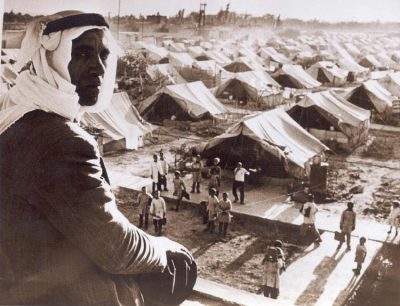On Nakba Day, Canada Must Address Complicity in Palestinian Dispossession

All Global Research articles can be read in 51 languages by activating the Translate Website button below the author’s name (only available in desktop version).
To receive Global Research’s Daily Newsletter (selected articles), click here.
Click the share button above to email/forward this article to your friends and colleagues. Follow us on Instagram and Twitter and subscribe to our Telegram Channel. Feel free to repost and share widely Global Research articles.
Global Research Wants to Hear From You!
***
On the 76th anniversary of the Palestinian Nakba (‘catastrophe’ in Arabic), Canadians for Justice and Peace in the Middle East (CJPME) is calling on the Canadian government to address its ongoing complicity in Palestinian dispossession. The Nakba refers to the expulsion, destruction, and ethnic cleansing of Palestine associated with the creation of Israel in 1948, and this process of dispossession continues in the current genocide and mass displacement in Gaza, as well as illegal settlement expansion, house demolitions, forced evictions and settler violence in the occupied West Bank and East Jerusalem, and parts of the Negev. CJPME has submitted a series of recommendations to inform MP Matthew Green’s Nakba Bill initiative, which will involve the creation of a private member’s bill, outlining concrete steps that Canada can take to counter Israeli policies of dispossession and affirm the rights of Palestinian refugees.
“On this Nakba Day, our minds are on the horrific genocide and mass upheaval in Gaza, which echoes the ethnic cleansing of Palestine in 1948”, said Dr. Lena El-Malak, CJPME board member, daughter of a Nakba survivor and co-author of the submission. “The Nakba is not just a historical event. The Nakba marked the beginning of an ongoing process of colonization and ethnic cleansing of the historical land of Palestine of its indigenous population. The genocide in Gaza is its latest and most violent manifestation. There is no hope for a just resolution without acknowledging the Nakba and the 76 years of dispossession that Palestinians have faced since.”
More than 720,000 Palestinians were forcibly expelled by Jewish militias between 1947 and 1949 and prevented from returning to their homes. Today, Israeli ministers are enacting a ‘Second Nakba’ against Palestinians in Gaza, with Israel driving the mass displacement of nearly two million people (two-thirds of them who were already refugees), and there is evidence that Israel wants to drive the population into Egypt. In the occupied West Bank, Israeli settlers and soldiers have forcibly depopulated 16 Palestinian communities during this same period. CJPME argues that these developments reflect an ongoing process of ethnic cleansing that did not end in 1948.
Not only has Canada refused to acknowledge the Nakba, but public officials have themselves promoted Nakba denial, which the Arab Canadian Lawyers Association (ACLA) identifies as a form of anti-Palestinian racism. In the last two years, the Canadian government voted against an initiative to have the United Nations officially commemorate the Nakba, and then boycotted the first official Nakba Day event without any explanation. This is a provincial concern as much as a federal one, as just this year a government minister in BC disseminated racist and colonial tropes to justify the displacement of Palestinians, while a minister in Ontario sought to exclude the Nakba from being marked in school social calendars.
To counter this disturbing trend, CJPME has submitted policy recommendations to MP Matthew Green to inform the drafting of a private member’s bill. The full submission, which is available online, outlines how Canada can acknowledge and rectify the historical tragedy of the Nakba. Some of its recommendations include:
- Canada must officially recognize the Nakba and our role in the partition of the Mandate of Palestine.
- Canada must recognize Nakba denial as a form of anti-Palestinian racism and as having a direct impact on Canadians’ right to free speech and academic freedom.
- The Nakba is ongoing and Canada must play a role in halting it and reversing its consequences. To halt it, Canada must pressure Israel to change course by implementing boycotts, divestments, and sanctions.
- Canada must insist upon the right to return, restitution, and compensation for Palestine refugees, consistent with UNGA Resolution 194 and general principles of international human rights law and refugee law, and acknowledge that these rights are distinct, they are not mutually exclusive and must not be pitted against one another.
- Canada must play a role in demanding accountability and reparations for the Nakba (past and ongoing) by calling on the international community to set up an International Criminal Tribunal for Palestine, and by providing support to the International Criminal Court’s open investigation into war crimes committed in the Occupied Palestinian Territories.
*
Note to readers: Please click the share button above. Follow us on Instagram and Twitter and subscribe to our Telegram Channel. Feel free to repost and share widely Global Research articles.
Featured image: Nakba 1948 Palestine – Jaramana Refugee Camp, Damascus, Syria (From the Public Domain)

